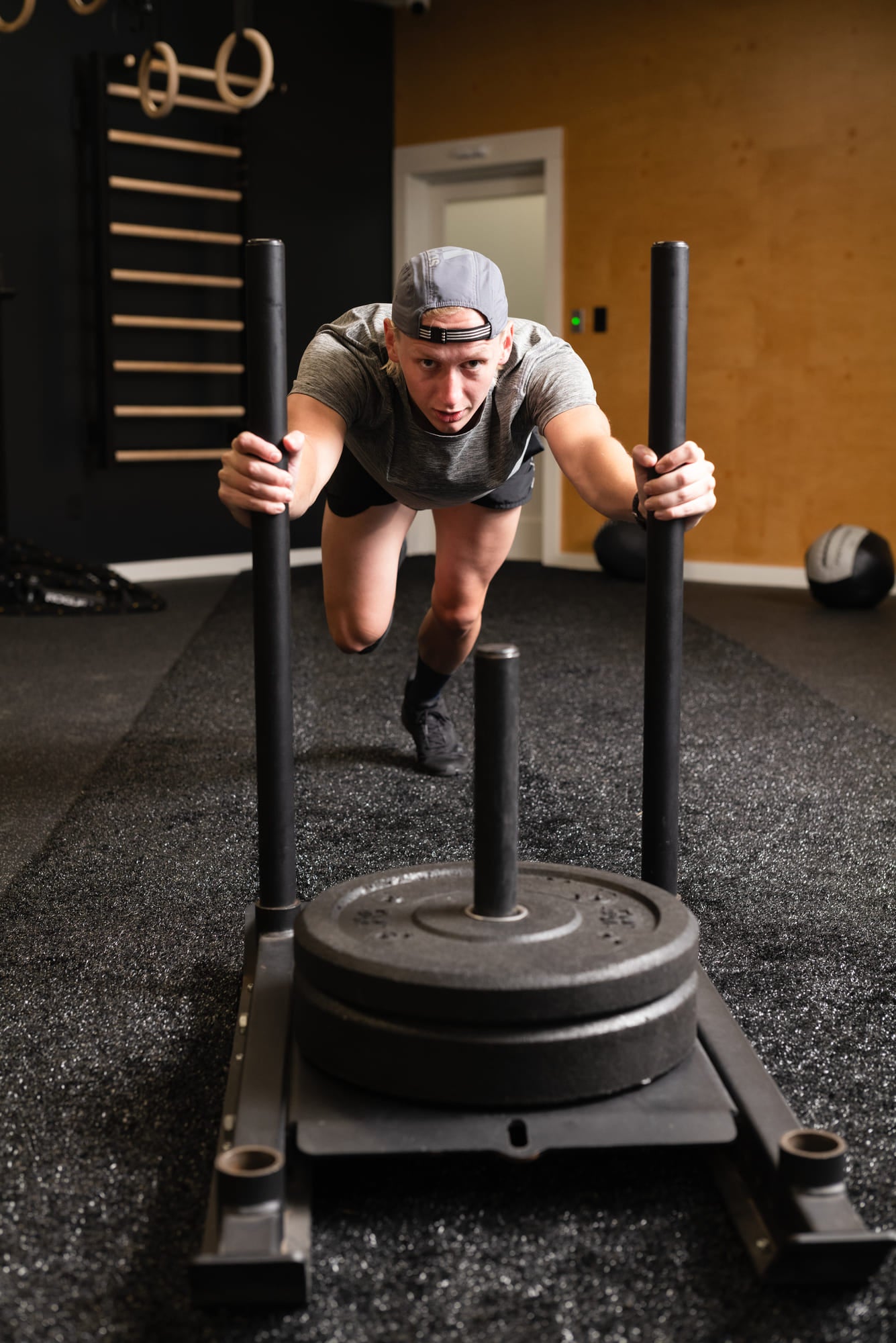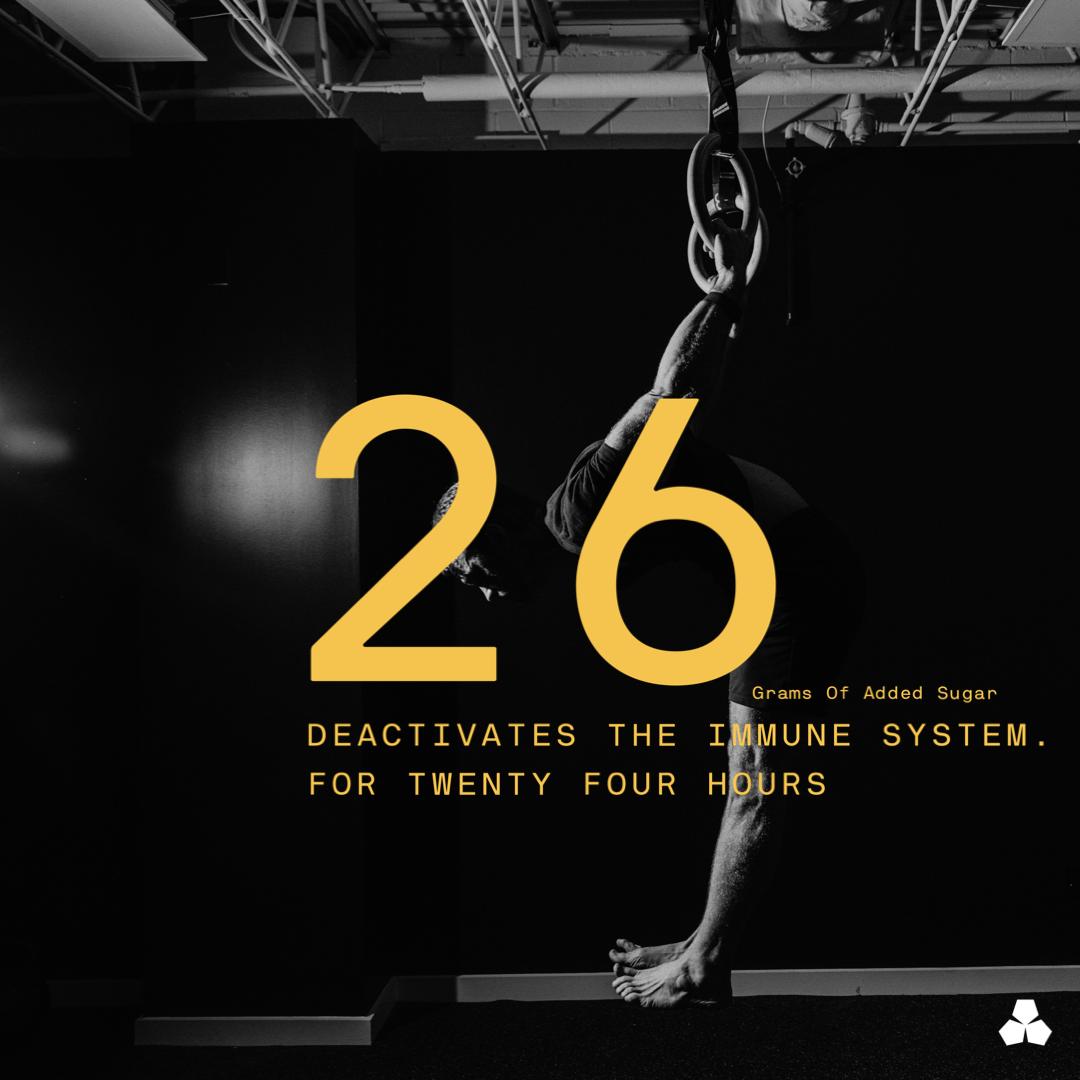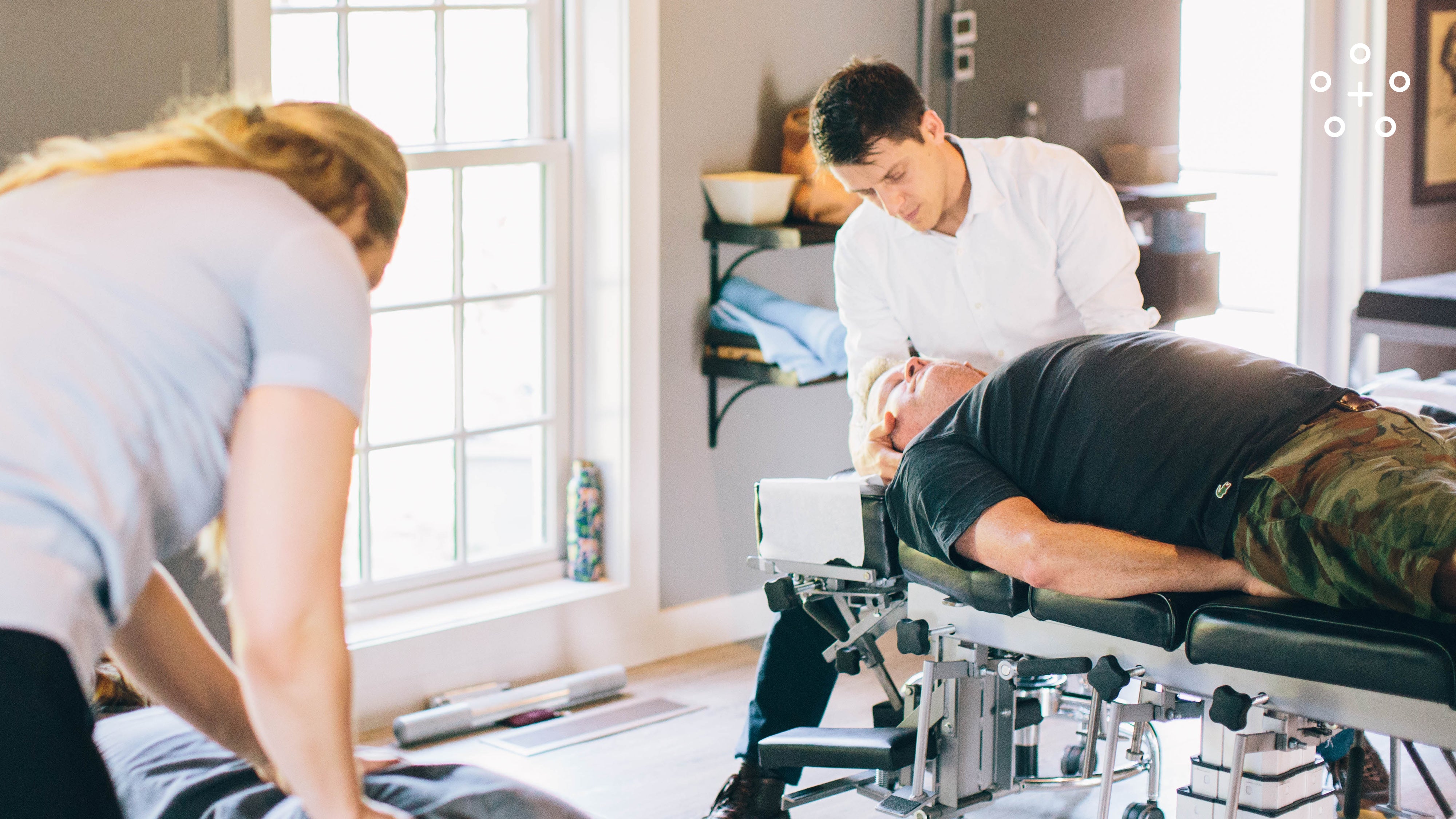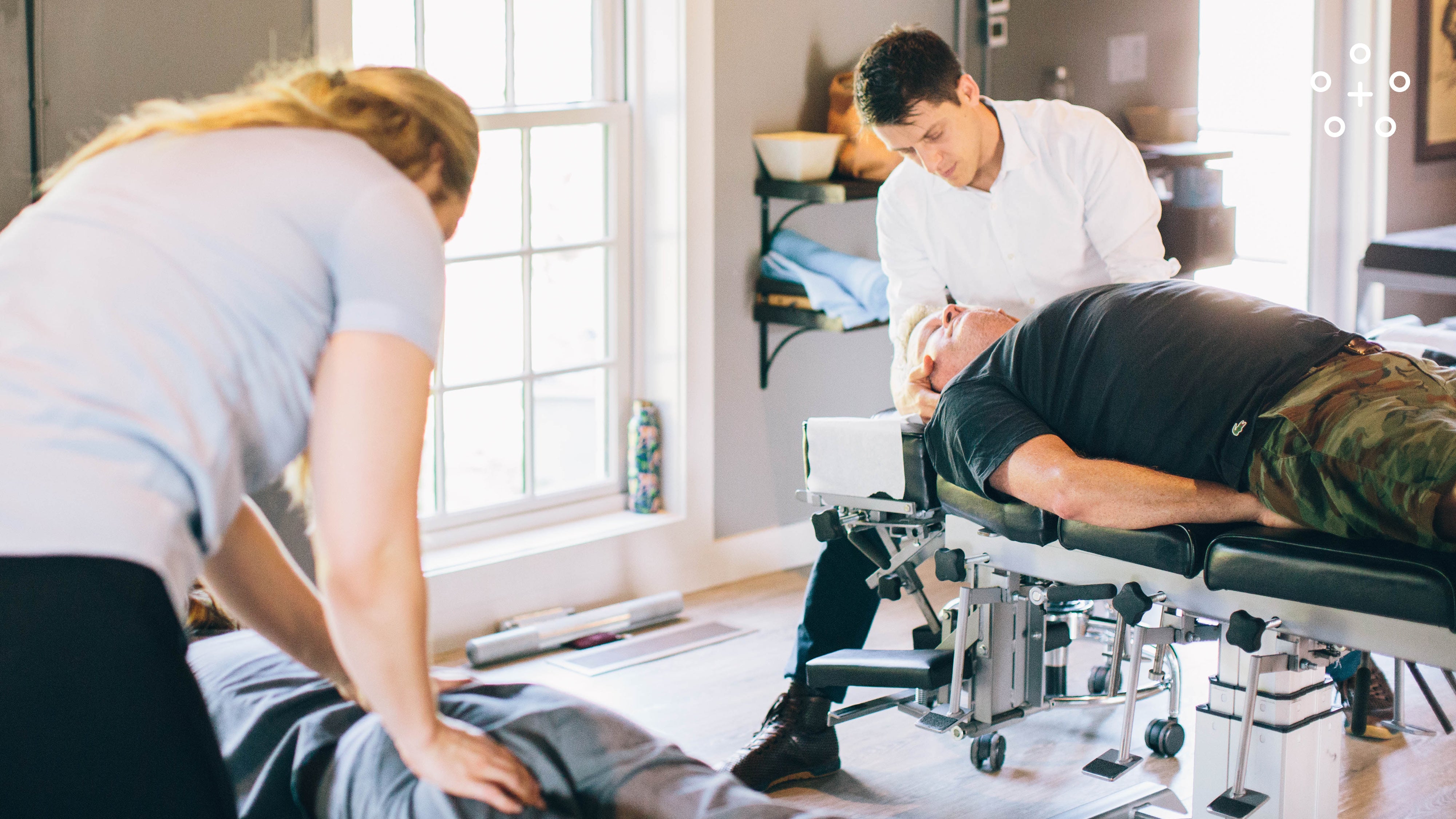https://vimeo.com/331055275
Transcript:
Hey guys, my name is Dr. John Palmer with Friends & Family Health Centers in Birmingham, Alabama. Today, what I'm going to be doing is talking about sleep and how important sleep is. So research shows that in America, we are living longer, we're becoming more dependent on drugs, our quality of life is lessening. So one of the things that the research also shows is that some sleep data shows that if you sleep consistently, at the same time, and you get consistent sleep, you're going to repair a lot more efficiently. So I'm going to be talking a little bit about that and how to actually encourage sleep to encourage repair.
So there's no way that you can do anything in your life without the use of sleep. We were meant to sleep, if you don't sleep, it turns into more and more problems. You're not going to be a healthy person if you don't consistently sleep. If you do sleep, you have time to repair, you have time to recover from a busy day using your brain or a busy day using your body. It gives you time to repair, gives your brain time to truly break memories down to more utilizable bits of information to use, and it gives your body the ability to repair, truly repair from the day's stress before.
So the sleep cycle in the body is made up of two primary hormones. You have cortisol and you have melatonin. Cortisol is released at the beginning of the morning, as soon as you wake up. What it does and a way that you can look at it is it's used to actually stimulate the use of energy in your body. It is really, really good in a mild form. In a chronic form, it turns into an inflammatory mechanism of the body that could be one of the reasons why someone may not go to sleep because it ramps up the cells in the body to produce and it interacts with the organ systems which it just hypes up everything. You can look at melatonin as being able to dampen everything. And so, melatonin is released when you go to sleep. So they should be inversely related. During the day, cortisol should be high. During the evening, cortisol should be low. And then, they should switch at night.
There are a few things that you can actually do to get this sleep/wake cycle back on track. The first thing you can do is go to sleep and wake up at the same time. So pick out a time of … The research shows that around seven to eight hours is optimal. I know that most people, that might be a goal that you get. Like, I know I'm a dad of three babies and so I know that sometimes that's just not doable. I try my best and I typically can control when I wake up, but it's a lot more ambiguous of when I go to sleep. But it is within a certain window, I don't go past a certain point. But I absolutely get up, no matter what. Some mornings it's a little bit more difficult. Do I do it perfectly every day? Absolutely not. But you will have a better deep sleep and you'll have a better or more efficient REM sleep, so Rapid Eye Movement, and then you'll have a less ability to have like a lighter sleep state. As you continually sleep on a regular basis in that time frame, your body gets good at truly getting into a deep sleep and getting into more of a REM sleep.
If you're trying to restart your sleep/wake cycle, if the very first thing that you do in the morning, you have to get your heart rate up, you have to see light, you have to begin to move. So if you begin to do all those things, you don't lay in the bed, you have to get up and physically move. If you can see light, if you can see sunlight, preferably, that typically gets that cortisol release. You can actually… If someone is trying to get a really drastic effect of rebooting their sleep/wake cycle or their circadian rhythm--exercise. Changing and getting into that top state of your max heart rate for just even, I think it is 30 seconds, you truly jump start your cortisol release. And so, why that's important is that if you go through the day, your liver and your brain can only produce, and your other organ systems, can only produce so much cortisol in that state. So you get cortisol release and then as the day goes on and you get towards the evening, your melatonin release begins to increase. And then if you're going to bed the same time, the melatonin release outperforms the cortisol, and then that's what actually induces sleep.
To help induce a healthier quality melatonin release, don't take any artificial stimulants, don't take any natural stimulants. So coffee… Gosh, there's so many man-made things that we can put in our bodies, don't take any of that. If you're trying to truly change your sleep/wake cycle, don't put it in your body at all. If you're not on the extreme state of not sleeping, then what you can do is you can still drink coffee in the morning, you can do all those things. I know I love coffee, it's going to be hard for me to do that because I love it so much. But I also don't have trouble sleeping.
One thing that's going to help you with your sleep is that if you're in a dark, cool room. So think about getting the room cool and dark. If you can block any type of artificial light coming into the room, that's also going to help you tremendously. So TV coming into your brain is going to just ramp up your frontal cortex. Believe me, you already have plenty of other things in your day that ramp up your frontal cortex and just get you on edge and it's that fight or flight system, it's a fight state to where your cortisol release goes up and up and up with that blue light that comes in. Any other artificial light like street lights, alarm clocks, telephones or mobile phones, screens, period, they ramp up cortisol release. So if you're truly watching that before you go to sleep, you truly want to begin to dampen that. Probably always but definitely within two hours, minimally, before you go to sleep.
Also, this is one thing that I want you to understand is when you have things that encourage a sleeping pattern, so what I mean by that is the drugs that will hold you in a certain wave of sleep, so when you take something like a sleep-inducing drug, you have four waves of sleep, essentially. In those four waves of sleep, that medicine or that drug that induces that sleep and you think that you're sleeping great through the whole night, or using like a over-the-counter medication or you're using something that would artificially create sleep, it's not actually creating a truly repairing or truly effective pattern of repair. You're being stuck, literally, in that one stage of sleep and you're not continually going through these waves of sleep throughout the whole night. So you're just getting stuck in one position of that sleep cycle.
That's not good because you're supposed to go through several of those cycles a night to truly repair. And if you get stuck in that cycle, it's not going to truly help you, it's going to harm you. So that is where you're going to truly disrupt repair, you're going to disrupt and cause more cortisol release because you're not releasing that melatonin on a regular basis throughout the night and what happens is your cortisol levels get jacked up, and up, and up. And then you get to a point to where you cannot in any way secrete enough melatonin to actually compensate and get over that cortisol release to actually get you back on a normal sleep cycle.
Another thing that you don't want to do is the last three hours of your day should be reserved for something with a lower activity. You shouldn't necessarily be exercising, you shouldn't be getting your heart rate up to a certain point before sleep. So three hours, you want to really conserve that for something that is mild, winding down your night, getting ready for bed, essentially.
The other thing is eating late. So you don't want to eat late because what's going to happen is your parasympathetic system or your digestive system is going to have to use energy to actually break down those foods and that's going to harm your ability to get a full night's sleep of deep sleep and REM sleep.
Okay, so some of the things that you can do that are not necessarily connected with your sleep are making sure that your diet's clean. And what I mean by that is removing gluten, dairy, sugar, processed foods. A really good diet or dietary guidelines is the Whole 30 diet, Paleo, those type things. That actually will decrease inflammation in the body. When you decrease inflammation in the body, you have less that you have to essentially deal with when you go to sleep, it has less cortisol release because when your body is essentially attacked, when you have a virus, a bacteria, you eat crappy food, you eat things that are bad for you, that's also cortisol release. It doesn't necessarily have to be a bad experience, it could be truly an insult to your body, period. And so, that releases cortisol throughout your day, also.
Another really, really great form of monitoring your stress level is heart rate variability. It's a really complex subject, so what I want you to do is I want you to either tune into a later blog post on heart rate variability or check it out on the internet. But it is an excellent way to also look at stress levels in the body.
The other thing is meditation. So, meditation is really, really important. We never do it in our culture, but it's very, very good for dampening frontal cortex stimulation. Frontal cortex is the thing in your brain that actually moves you forward and tells you you have to go do things. We have so many things that ramp this up. Because it is a fight or flight mechanism, we are in a constant fight state in our culture because not necessarily that you're fighting something, just that you have a lot of stimulus come at you in the sense of what you have to process. Phones tend to ramp up that, talked about that earlier in the video. But the truly meditation, when you meditate, meditation is only truly limiting and downgrading your ability to cool down that frontal cortex. When you cool down that frontal cortex, you limit the release of cortisol and you encourage the ability for the release of melatonin, depending on where you are in the day.
If you have consistent issues and you're not able to figure it out, find someone that can help you that understands it. It's absolutely crucial that you sleep, it's absolutely crucial that you sleep consistently. So hopefully, some of this helped. It was a lot of information, hopefully it was organized enough to where you got what you needed out of it, you learned one thing or two things. Hopefully it helps you sleep. Thank you so much.




